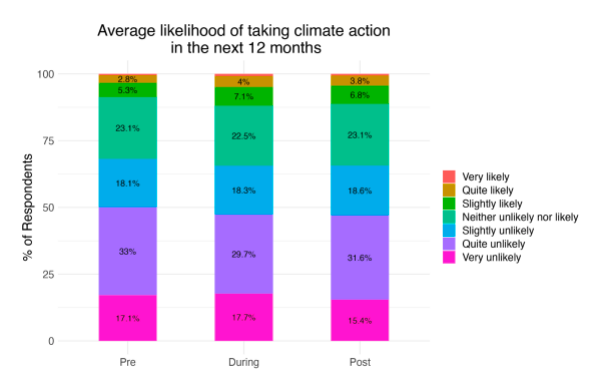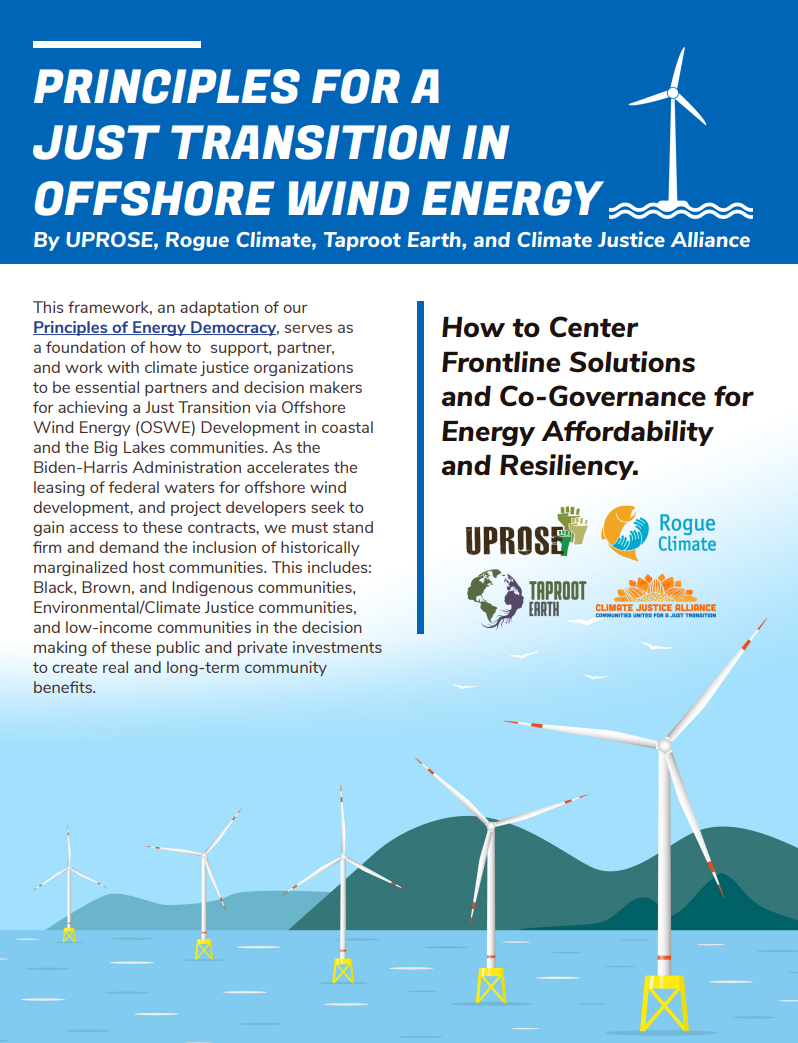Resources
Search below for resources covering the intersection of climate engagement, social science and data analytics.
RESULTS
The North Star State has a new North Star: 100 percent clean electricity by 2040. Minnesota joined 10 other states, along with the District of Columbia and Puerto Rico, in creating laws that require a transition to 100 percent carbon-free electricity—highlighting a trend of state-level action to act on climate, create local jobs, lower energy costs, and reduce deadly pollution. MN Representative Jamie Long, Majority Leader of the Minnesota House, and advocacy group Fresh Energy executive director Michael Noble played key roles in making 100 percent clean electricity the law of the land in the state. This resource includes an interview with them about the process leading to this new Minnesota policy. A big coalition of interest groups supportive of this policy was necessary for its passage. The bill passed full Democratic support and zero Republican support. The coalition included small business, families, family-supporting jobs and labor and trade unions, environmental justice groups, environmental groups, and traditional advocates for renewable energy.
Harnessing the enormous untapped power of celebrity to help social movements
Building on the long legacy of activist entertainers, here are five ways movements for justice and famous supporters can partner to promote change. First, celebrities and movements can make better political endorsements together: they can look to social justice organizations for guidance as to which candidates have listened to them and committed to processes to govern in the best interest of their communities. Second, celebrities can amplify trigger events, which can draw people with no prior interest or experience in politics into mass protests. Third, celebrities can boost organizing campaigns, especially at pivotal campaign junctures. Fourth, celebrities can expand the Overton window by lending their support to causes and movements that exist outside of current norms, and thereby work to expand the bounds of public acceptance. Fifth, they can fuel boycotts by putting extra pressure on corporations.
What determines the success of movements today?
New research from the Social Change Lab offers key insights into the three main factors that lead to protest wins. First, nonviolent tactics are more likely to lead to successful outcomes relative to violent outcomes—experts consulted were reasonably confident that violence is a less effective approach and the literature supported their view. Second, size of protests is really key, with better-attended protests meaning a higher chance of policy changes and other desired outcomes. Third, favorable sociopolitical context like pre-existing public opinion, the response of the media, whether there are elites (like politicians or celebrities) who support the cause, as well as blind luck are helpful for facilitating successful political outcomes.
Climate Deep Canvassing Report
Kentuckians for the Commonwealth ran a Climate Crisis Deep Canvassing Project in Louisville, Bowling Green, and Hazard, Kentucky where they knocked on thousands of doors and had more than 600 conversations with low-income communities and communities of color. They developed a written report that synthesizes the lessons, themes, and best practices from their on-the-ground experience to inform future canvassing trainings and program design.
Supported by the Climate Advocacy Lab's Climate Justice Microgrant Program.
Campaign Communications Course
This free course is designed to help grassroots groups to understand the basics of public communications for building a convincing, winning campaign. It can support groups looking for skills on crafting targeted messaging and framing to move people towards social change. You might want to campaign to fight your opponents, convince new audiences, or mobilize audiences that already support your cause. Each of these objectives requires specific communication strategies. The course includes defining public campaigning, communications basics, campaign objectives (neutralizing, informing, persuading and mobilizing), reaching your target group and storytelling. This takes approximately 5 hours to review. Deep dive sections may add 3-4 more hours. Group discussion time may vary.
Storytelling for Deep Impact Course
This free course is designed to help grassroots groups understand the basics of powerful storytelling to change hearts and minds and specifically to win over “moveable middle” audiences. It can support groups looking for skills on how to structure a story and how to connect a narrative to the emotions, values and life lessons for a group’s target audience. The course includes: the importance of story, how stories are structured, relatability of stories, identifying key story elements (conflict, choice, life lessons), choosing the right messenger, writing a story and delivering your story. The minimum expected learning time is 1 hour. An adequate review that includes engaging in the deep dive sections is expected to take approximately 2 hours. Group discussion time may vary.
Environmental + Climate Justice Syllabus
The goal of the Environmental and Climate Justice Syllabus is to assemble readings, articles, case studies, and biographies from key writers, scholars, and activists working for environmental freedom. The emphasis, here, is to generate a searchable and citable list of Black, Indigenous, and/or Latinx individuals, organizations, and movements which are indispensably foundational in the continued fight for environmental and climate justice. Just Environments Lab are also expanding the syllabus to represent more non-US/non-Global North scholars. They also provide a few resources from allies whose work is deeply engaged throughout the syllabus.
Innovation Hub
The Innovation Hub is here to empower data learning and strategy among environmental organizations. The Partnership project works directly with data strategists and communications teams at partner organizations to assess common needs and opportunities that can be met with data, and designs original research and experiments, pilot new methods and data tools, and highlight innovative projects. This website share what is being learned through case studies and playbooks, webinars and meetups, newsletters. Workstreams include “extreme weather insights and targeting,” “GOTV and civic engagement,” “membership match resources,” “more insights and data.”
Radical Tactics Are Likely To Help The Climate Movement, Not Hurt It
While radical nonviolent protesters are often ridiculed and hated, there is little evidence that their tactics have negative consequences for the overall movement. There are myriad benefits to employing more radical tactics. Radical tactics, which by definition are actions that are somewhat abnormal, receive much more attention than moderate actions. Radical tactics can increase support for the moderate factions of the climate movement. Radical tactics can increase the percentage of people who think the environment was the most important issue facing a country—for example, when Extinction Rebellion London blocked Central London for 10 days in a row, the percentage of Brits who thought the environment was the most important issue increased from roughly 18-28%. Radical tactics can increase willingness to take part in certain forms of activism. In April 2022, a poll found an increase of 1.7 percentage points in the number of people saying they were willing to take various forms of climate action.
Principles for a Just Transition in Offshore Wind Energy
Pagination
- Previous page
- Page 4
- Next page








